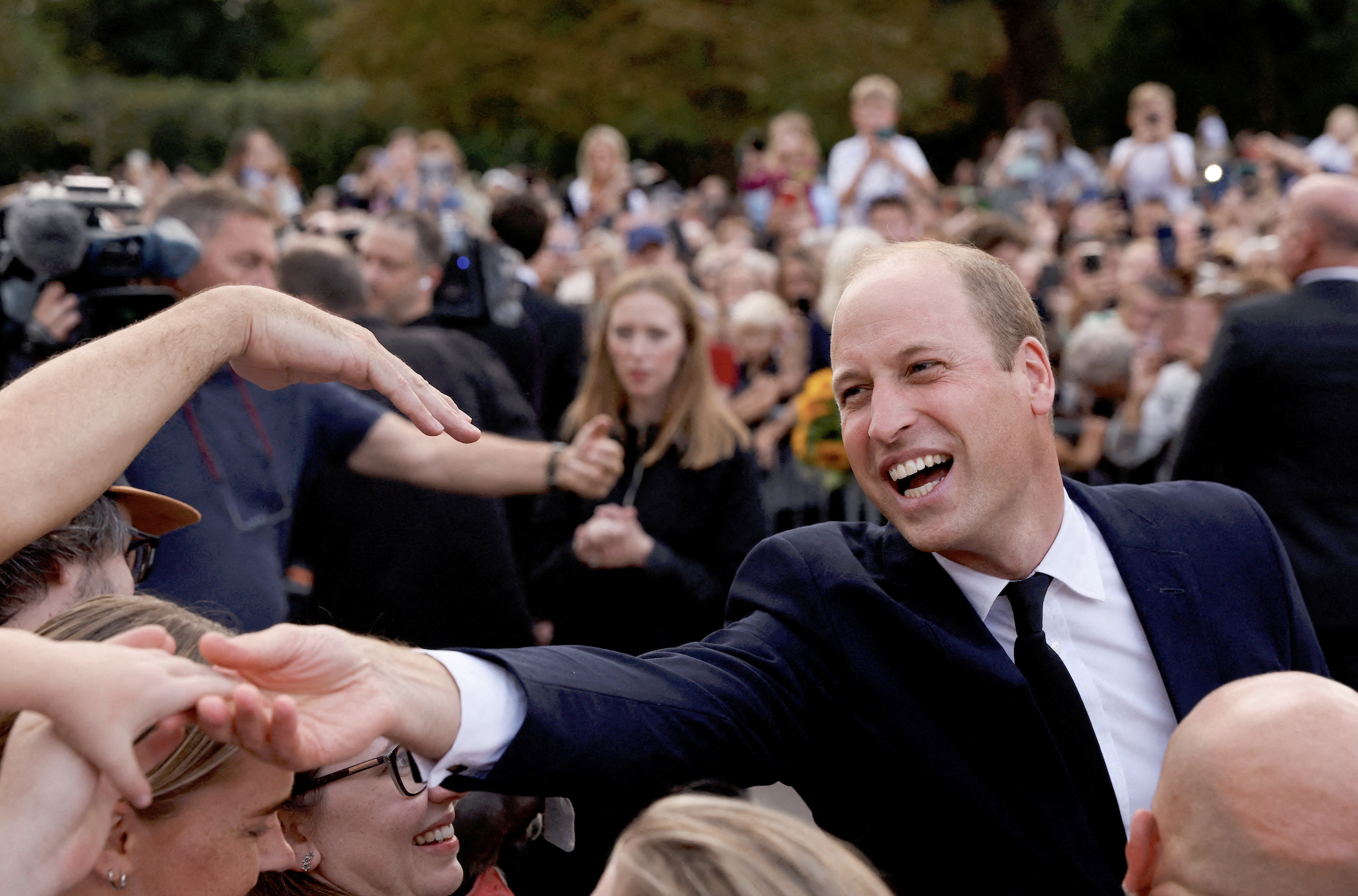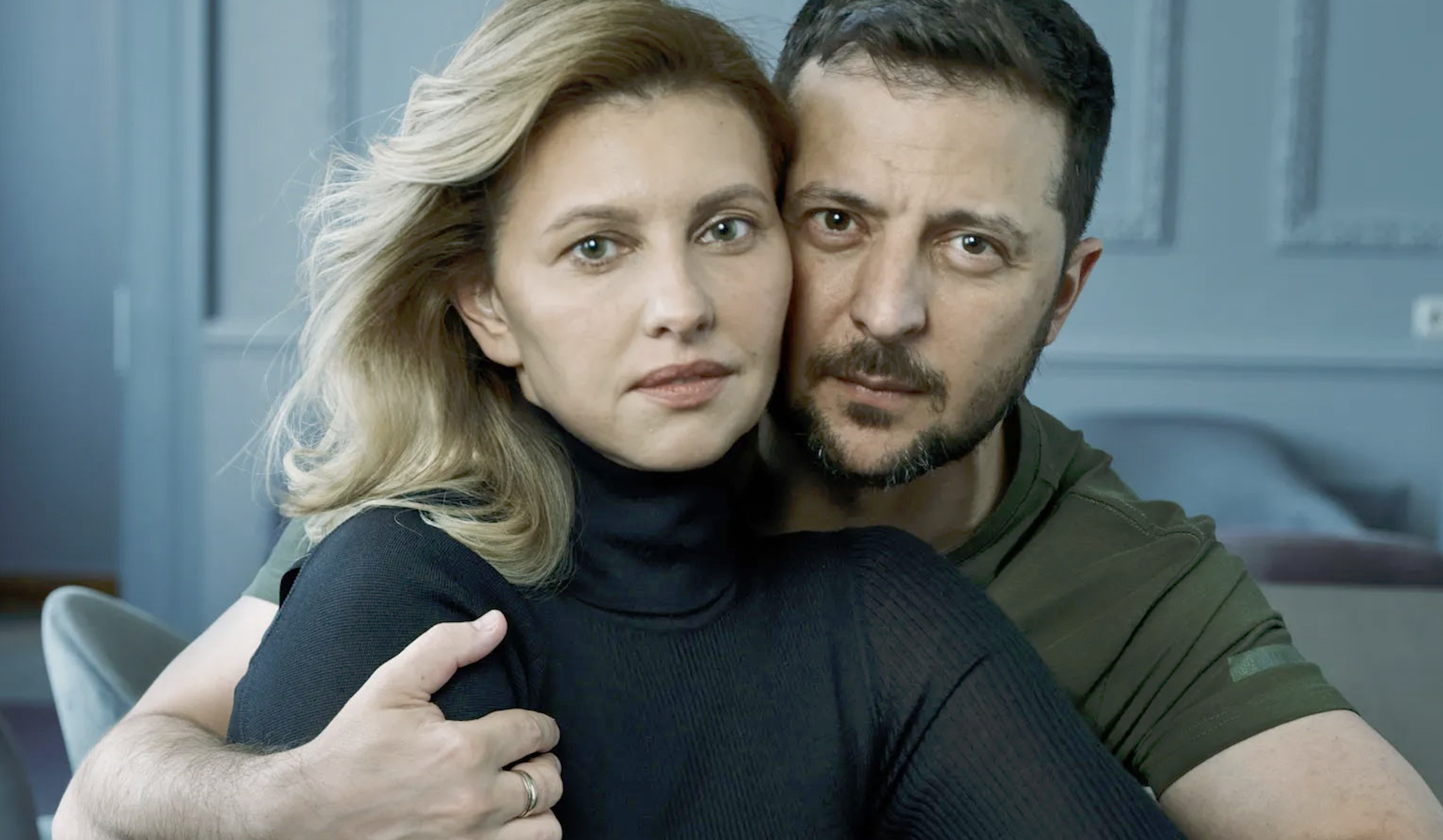Sunday Morning / September 24, 2023
The United Nations 78th General Assembly met this week to maintain international peace and security; develop friendly relations among nations; achieve international cooperation; and serve as a centre for harmonizing the actions of nations. This year's mantra: Rebuilding Trust and Reigniting Global Solidarity.
Meanwhile, Ukraine was launching back to back attacks in Sevastopol nearly 10 years after Russia's invasion of the Crimean Peninsula, hundreds of thousands are dead. "When we are talking about the Russia-Ukraine War, we are always talking about morality,” Ukrainian President Volodymyr Zelensky told the Yalta European Strategy this month. This standard-bearer of democracy also invoked the same message when visiting Washington this week.
In addition to the $46.6 billion in military aid to Ukraine since the war began, U.S. President Joe Biden pledged a new $325 million round of military aid for Ukraine this week. According to the Kiel Institute for the World Economy, 47 countries have provided military aid to Ukraine. Germany comes in at $18.9 billion; the United Kingdom at $7.3 billion; and Norway at $4.1 billion. On down the line is Poland at $3.3 billion with a plot twist.
On Wednesday, Poland abruptly announced that it would cease supplying arms to Kyiv. "We are no longer transferring any weapons to Ukraine," Prime Minister Mateusz Morawiecki said, adding, “I want to tell President Zelensky never to insult Poles again, as he did recently during his speech at the UN."
Tensions between them rose over a ban on Ukrainian grain, initially put in place to protect Polish farmers. As Zelenskyy tells it, "some EU countries feign solidarity by indirectly supporting Russia."
And therein lies the paradox between solidarity and trust. The ethics are always in the economics. While the wars in Vietnam, Iraq, and Afghanistan were clear U.S. defeats, not one of them ensured democracy for their respective countries—or the world. Morality, as it happens, lies far and beyond the battlefields of war. Truth so often comes as a surprise.
Editor's Note: I had a friend once. She was one of the first women to move really high up at Wachovia. You know what it's like in the high rooms, every day putting out fires, but the job wasn't anything she thought it was. And she was looking the wrong way when they fired her.
Succession
Rupert Murdoch, 92, Chairman of Fox Corporation and News Corporation, announced on Thursday he’ll step down in a memo to employees.
For my entire professional life, I have been engaged daily with news and ideas, and that will not change. But the time is right for me to take on different roles, knowing that we have truly talented teams.
Murdoch launched Fox News in ’96 with the express purpose of creating a conservative TV network. Fox News was a business, Murdoch a businessman, which ensured that ratings drove programming. A nonstop Republican message-testing machine, Murdoch curated the new Republican party, and though he’s fallen out with their leader (Trump dominates polls in the Republican primaries upward of 40%) he no longer controls the narrative.
In April, the network agreed to pay nearly $800 million to settle a defamation lawsuit brought by Dominion Voting Systems over 2020 election coverage. Though Trump and Murdoch’s relationship is currently off, there is little doubt that Fox will back Trump if and when he becomes the Republican party’s nominee. Here’s why. Four criminal trials and 91 charges aside, Fox viewers will demand it.
The Prince
According to Niccolo Machiavelli — an Italian diplomat, author, philosopher and historian who lived during the Renaissance — the ends always justify the means, no matter how calculating, immoral or cruel.

Rupert Murdoch, Lachlan Murdoch, James Murdoch
When Machiavelli wrote The Prince, a revolutionary guide to power in the 16th century, he described the unconventional way in which powerful people succeed. “Because people are quick to change their nature when they imagine they can improve their lot,” he wrote, “a leader must also be shrewd.”
Until Machiavelli’s writing, most philosophers of politics drew from the Greeks who defined leaders as virtuous. “A virtuous man naturally comes to grief amongst the unvirtuous. Therefore, if a prince wants to maintain his rule he must be prepared to be unvirtuous.” To the extent that Machiavelli was vague he put it this way: “It is better to be feared than loved, if you cannot have both.”
While Machiavelli inspired Henry VIII to defy the pope; William Shakespeare to pen Henry VI; Edmund Burke to credit the French Revolution to the “odious maxims of a Machiavellian policy;” Hitler to keep a copy by his bedside; and Stalin to read and reread annotated copies of the book, some scholars have questioned whether Machiavelli intended the treaties to be satirical? A hypothetical warning of what could happen if power is left unchecked.
A cold-blooded blueprint for how to gain and hold onto power, Francis Bacon, the English statesman-scientist-philosopher, was among those who appreciated Machiavelli’s frank reflections early on. “We are much beholden to Machiavel and others,” he wrote in 1605, “that write what men do and not what they ought to do.”
Prince of Wales
Ahead of his first appearance at the United Nations Climate Summit, Prince William was harvesting oysters in New York Harbor as part of the Billion Oyster Project: an organization dedicated to revitalizing oyster populations in the harbor.

The Prince of Wales
In 2020, Prince William launched what Kensington Palace called "the most prestigious global environment prize in history." The Earthshot Prize is awarded to five winners each year for their contributions to environmentalism. The five categories were inspired by the UN Sustainable Development Goals that include; restoration and protection of nature; air cleanliness; ocean revival; waste-free living; and climate action. Each winner receives a grant of £1 million to continue their environmental work.
William's parent’s — Charles III and the late Princess Diana — were champions of environmental issues. “When I look back,” William says, “I want to make sure we've found the right solutions; we've found the right people; and maximized their impact.”
Cafe of Mistaken Orders
It was founded as a way to raise awareness and celebrate the quirks of living with dementia. Even though 37% of the orders are delivered wrong, 99% of customers are happy, the restaurant says. A Japanese television director, Shiro Oguni, created this business to change perceptions about aging and progressive cognitive impairment.
The first event was organized in 2017 and has been regularly repeated. It raised $115,000 through crowd-funding to get started, yet it wouldn’t be hard to imagine a profitable, everyday restaurant built around Oguni’s mission.
The idea for his project occurred when he was served a dumpling instead of a burger while visiting a nursing home. At first, he was going to complain; kick back; and send the dumpling back, but then he realized he was in a very different world with varying levels of personality, functionality and purpose. Why not just accept their disaiblity and split the difference? Why not lean into the unknown?

The Restaurant of Mistaken Orders
If Zelenskyy can engage JPMorgan Chase; Mike Bloomberg; Google CEO Eric Schmidt; New England Patriots owner Robert Kraft; hedge fund billionaire Bill Ackman; and former US Secretary of State Henry Kissinger to transform his war-torn country into a first world economy thats solidarity. Trust is to appreicate whatever comes out of the kitchen.








